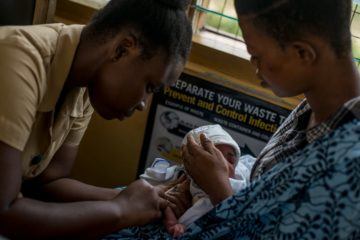Pratik Pawar in Undark:
 When the World Health Organization approved a malaria vaccine for the first time in October 2021, it was widely hailed as a milestone. “This is a historic moment,” said WHO director-general Tedros Adhanom Ghebreyesus in a statement that month.
When the World Health Organization approved a malaria vaccine for the first time in October 2021, it was widely hailed as a milestone. “This is a historic moment,” said WHO director-general Tedros Adhanom Ghebreyesus in a statement that month.
The vaccine — dubbed RTS,S — promises a 30 percent reduction in severe malaria in fully vaccinated children. In 2020, a research team estimated that each year, the vaccine could prevent between 3 and 10 million malaria cases, and save the lives of 14,000 to 51,000 small children, depending on how it’s implemented.
What those plaudits often failed to note, though, was that the core ingredient of the path-breaking vaccine was actually almost 35 years old — and that researchers have known since the late 1990s that the formula was probably somewhat effective at protecting against malaria.
At a time when Covid-19 vaccines were developed and authorized in less than one year, the delay for malaria raises a question: Why did a vaccine for a leading global killer take so long to arrive?
More here.
